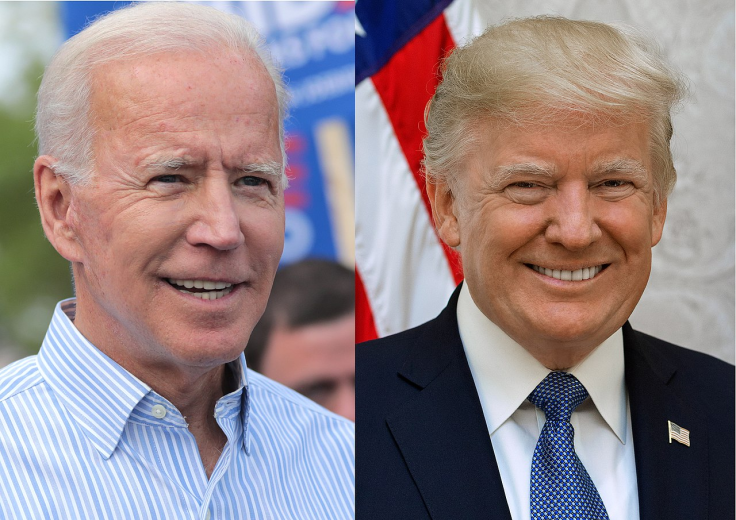With the 2024 presidential elections getting closer, higher education has come to the forefront of policy discussions, particularly at a time when public confidence in praised college degrees hit.
Both K-12 and higher education systems are dealing with big challenges. Candidates must have answers to some critical questions affecting millions of Americans.
Here are key questions that voters should consider when evaluating the candidates' plans for the future of education in the United States.

Public Confidence and Accessibility in Higher Education
Probably the most critical overt issue in higher education today is public confidence in obtaining a college degree. Rising tuition costs, student debt, and skepticism regarding whether an adequate return will be realized on this investment drive such skepticism. As part of their education policies, candidates, therefore, have to explain what they would do to regain the lost public confidence in higher education.
Key questions include: What will candidates do to make college affordable and accessible to every student? How will they ensure that a college degree continues to be of real value in a very fast-changing job market? To answer such questions, one needs an all-encompassing approach that ensures an augmentation of Pell Grants to students, tuition-free community colleges, and massive support for historically underserved groups.
A few more questions to ask are:
- Public confidence in the value of a college degree has hit historic lows. What has caused the decline, and what can Washington do to fix it?
- Some critics have accused President Biden's student loan forgiveness plan of being too broad and too expensive. Why are graduate borrowers included, and is this a better use of funds than expanding Pell Grants for low-income students?
- What role should the federal government play in making sure qualified students can go to college without overwhelming debt, and what kinds of measures are to be initiated to get spiraling tuition hikes under tight rein?
- Studies show that, at best, $190 billion in emergency pandemic aid for schools had, at best, a modest positive impact. Is this a sufficient return on investment for taxpayers? If not, what changes must be made?
- With nearly 40 million Americans having started college but not completed a degree, what will the candidates do to help students graduate from college on time and reduce college dropout rates around the country?
The Effects of Technology on Education
The digital age has changed everything about our lives, including education. But without the proliferation of smartphones and social media, we just can't imagine checking on youth well-being, mental health, and academic performance today. Candidates must spell out their position on the integration of technology into the learning curriculum while trying to reduce its negative effects.
Voters should be asking the candidates' views on banning smartphones from schools to improve the learning environment: How can technology be used to positively affect education and simultaneously protect the mental health of students? Clearly, this also speaks to what the role of the federal government should be in funding digital literacy programs and in terms of truly promoting access to technology for all students.
A few more questions to ask are:
- When it comes to young people, research finds drastic impacts on well-being, mental health, and academic performance through smartphones and social media. What are your positions on banning smartphones in schools, and what kind of response would it call for from the federal government?
- How can the presidential candidates make American colleges and universities Jennings student-ready with the changes in the job market at the entry level, which is increasingly influenced by artificial intelligence?
Racial and Social Inequities
Racial and social inequities in education are very critical. Systemic disparities prevail at all levels, from access to higher education to the measures of student success. The next president should address policies that deal directly with inequities.
Among the biggest of these questions would be: How do the candidates ensure and monitor the diversity of higher education admissions when there are no race-conscious policies? How will they provide for HBCUs and other minority-serving postsecondary institutions? Another important point is how this batch of candidates would actually close the K-12 achievement gap, which exists largely among students of color and from poor backgrounds.
A few more questions to ask are the following:
- How do bans on DEI initiatives impact the country's social values, commitment to equality, and democracy?
- What would the candidates do against this backdrop of dramatically rising antisemitic incidents on campuses, and how would they build upon the already set base by the U.S. National Strategy to Counter Antisemitism?
- How would the candidates actually feel about LGBTQ+ students who depend on colleges' support centers, particularly in states that have anti-DEI laws?
- How will the federal government ensure that the U.S. immigration system does not become an impediment to pivotal interactions between American researchers and their international coworkers?
- What federal tools should be utilized in order to obtain racial diversity in higher education if the admissions policies are not race-conscious?
As the 2024 presidential election draws near, higher education in the United States is one of the most critical topics that requires deep thought on the part of candidates and voters alike if this nation is to grow successfully within the very competitive, changing world of today. Restoring public faith in a system of higher education, exploring technology's role in learning, and tackling persistent racial and social inequities are challenges that require inventive solutions from the next administration. It is by asking these very questions that voters can make sure that the candidates maintain education as a top priority for the shaping of a better life for all Americans.
© 2025 University Herald, All rights reserved. Do not reproduce without permission.








